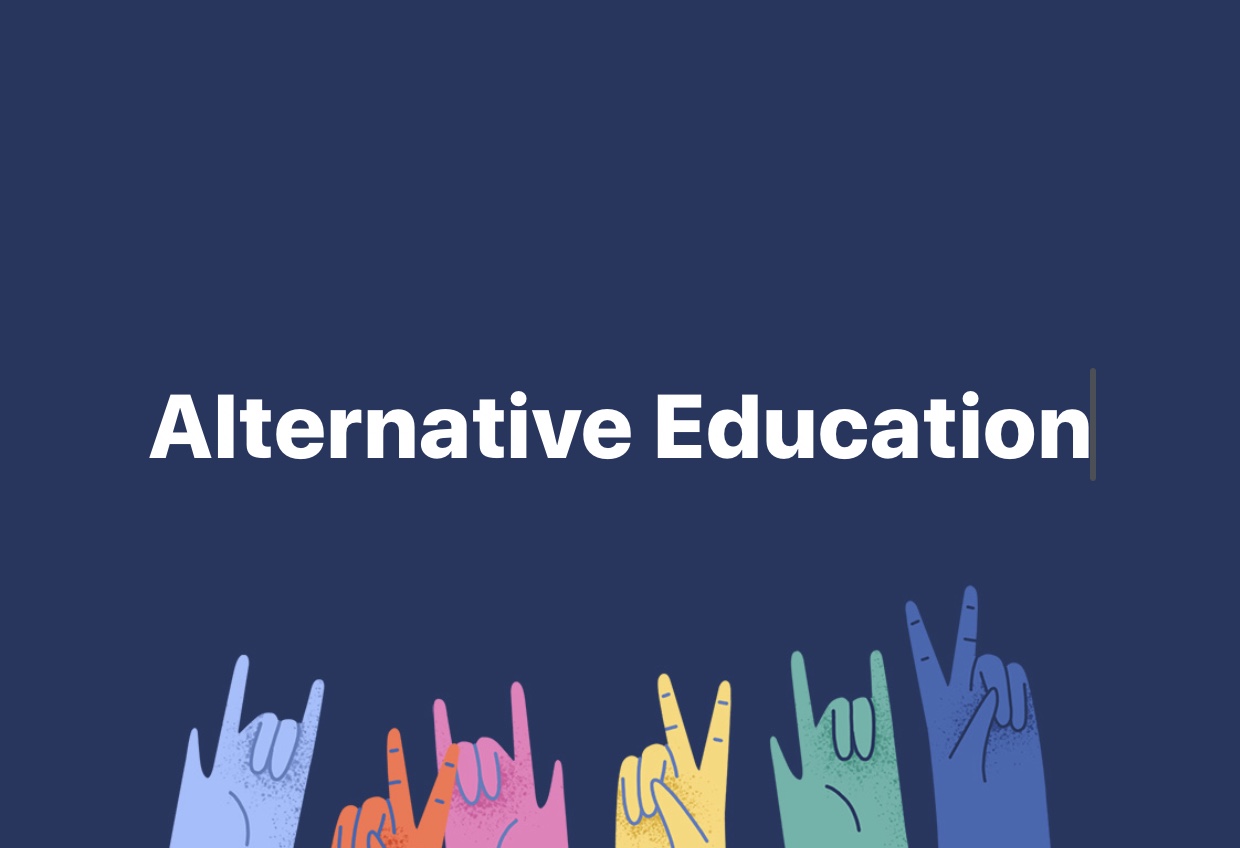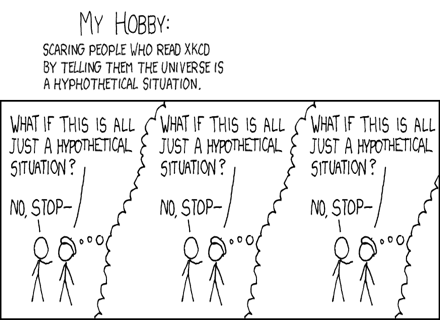Notes on "Alternative Schools/Education"

Before we go into the details of "Alternative" forms of schools and education, it would be good to get some clarity on - "What is education?".
What is Education?
The etymology of education indicates that it is borrowed from Middle French éducation, from Latin ēducātiō ("a breeding, bringing up, rearing"), from ēdūcō ("I educate, train"), from ēdūcō ("I lead forth, I take out; I raise up, I erect").
We can look at education from two distinct perspectives:
- ēdūcō (I Lead forth/ I take out) One set of thinkers (beginning with Socrates) prefer to describe education by comparing it to Midwifery. A teacher, like a midwife, only helps the mother to give birth. The teacher is not the mother. Likewise the pupil himself "conceives" the idea, (called "concept") and the teacher only helps.
- ēducātiō (train, rearing, bringing up) Other thinkers wonder if the mind contains "Innate ideas" which the teacher must help to bring out, or whether the mind is a blank Slate ("Tabula Rasa") upon which the teacher writes, while the student remains passive. A teacher is like a Sculptor, who carves out a stone block entirely by himself, leaving the stone passive.
Answer to the question of "What is education?" in the context of one's child is reasonably tricky and is going to be dependent on many factors, including:
- The education level of the parents
- Their political/economic/religious/personal beliefs
- Their economic status
- The constraints imposed by the society they live in
Before embarking on a child's education, it would be good for the parents to be aware of their biases & beliefs.
Our Journey - why alternative school?
We had to answer - "What does education of our daughter means for us?" before deciding to put our daughter in a school.
Renuka and I have a very similar upbringing (Indian middle-class family with the father employed in government organization). Both had completed professional courses and had the fortune of joining the software wave of the late '90s, bringing economic prosperity. Both had travelled to the US and were challenging or re-forming traditional and mainstream thoughts.
In the spectrum of the teacher as a "Midwife" vs "Sculptor", we started believing that the reality lies closer (if not squarely) to the "Midwife" than a sculptor. We felt (and still feel) that a teacher (and the parents) have to be fellow travellers in the child's learning journey and sometimes be a guide if needed. Otherwise, we (teachers and more importantly, parents) may end up unduly influencing the child's life and learning in our thoughts' mould.
Because the current state of evolution of mainstream narrative around education (see appendix for details), it felt closer to the "Sculptor" model. So we had to find alternative ways of educating our daughter.
We got scared by the curriculums (rather tall claims of skills imparted) that the preschools showed us, so we decided to have her at home till she was six. It was more of "no schooling" than homeschooling, and we toyed with the idea of homeschooling.
During this time, being a single child, we noticed that she was getting more comfortable dealing with adults than her age peers. We realized that a social setting where she spends time with her age peers is essential and hence started our research on alternative schools.
Our Experience
Our exposure to alternative schools was through a good friend of Renuka, an ex-CFL student ("Center For Learning"). We also got to learn more when I volunteered at Ananya ( http://www.ananyatrustindia.in/ ), a centre for alternative learning, for economically underprivileged kids.
We first had to understand what "Alternate schools" meant?.
We spent time researching (books, websites) about the schools, their philosophies, and talking to these schools' parents.
Some books that influenced us:
Free At Last: The Sudbury Valley School
Totto-Chan: The Little Girl at the Window
I have summarized our research in the section: Alternative education/schools.
As mentioned in that section, though they were all categorized as alternative schools, there are subtle and less subtle differences. For example, in Prakriya, the curriculum after mid-school (grade 5) is closer to the mainstream. Some of the schools were only pre or primary schools and had plans to evolve. Some schools were relatively new, and some were around for decades.
Our primary choice would have been a Sudbury valley school (based on our beliefs & biases). The learning communities were the closest we found in and around Bangalore. We chose Shibumi because it was in south Bangalore (sort of) and we were comfortable with the community itself, after interacting with them for a year.
Frequently Asked Questions
How can we get admissions in these schools?It depends. Most schools want to ensure that the child's parents understand its philosophy well before offering to admit. They also have limits on the number of new children they can take in every year. Our experience has been the more/longer a school has been established (CFL/Valley school), the harder it is to get in. Engage with the schools after you have shortlisted and work with them in their process.
What would you do after she grows up and has to join a mainstream institution? Can she cope? Will she be able to take exams?We genuinely do not have an answer to this question. There are multiple alternatives like giving NIOS exams, International Baccalaureate and others. We believe that we will find out on the go.
Will alternative education make my kid great in art or sports or other things?Again we do not have an answer to this question. We believe that it takes time for children to find out how they would like to spend their lives. We also like to think that we do not have any expectations in general.
Does it cost more?It depends. In general, we should pay good teachers well, as they have to earn a living. Also, we need a lower student to teacher ratio to enable individualized attention. It also depends on the amount of time & energy you as a parent can devout to your child's learning journey. Some schools like Aarohi & Marudham have managed to have lower school fees.
Alternative Education/Schools
An alternative school is an educational establishment with a curriculum and methods that are not considered mainstream or prescribed by the government bodies. There are many different philosophies of methods/curriculums offered by these schools.
Broadly they differ the mainstream narratives in the following dimensions, often in multiple or overlapping ways:
- More individualized style of education.
- Children manage/regulate what and when they learn.
- Active participation from the family of the children in all aspects of education.
- Focus on multi-discipline learning.
- Lesser dependency on gadgets.
- Emphasis on natural environments for learning
- More active learning by doing (experiential learning).
- Rejection/Deferment of standardized tests
Following provides a list of alternative narratives in education that we had explored.
- Sudbury Valley School
- Montessori Education
https://en.wikipedia.org/wiki/Montessori_education
- Waldorf Education
https://en.wikipedia.org/wiki/Waldorf_education
- K Schools
https://en.wikipedia.org/wiki/The_Valley_School
List of Schools following alternative teaching methods in Bangalore
We had actively visited and evaluated the following schools in our Journey.
Preschools
https://prakriyaschool.edu.in/
http://www.magicpuddles.com/index.php
K Schools
https://en.wikipedia.org/wiki/The_Valley_School
Steiner School in Bangalore
http://bangaloresteinerschool.org/index.html
Learning Communities
The following schools follow a learning structure as a community where the teacher also is a learner in various ways.
https://marudamfarmschool.org/
A more comprehensive list of the alternative schools in and around Bangalore is available in the following link - https://buzzingbubs.com/bangalore/alternative-schools-in-bangalore
Addendum
Evolution of Educational institutions - Schools
As we know them now, schools are about 100-150 years old (the universities are much older). The governments in many countries (state & central) have taken up ownership of the domain of education. They have standardized the school structure, the content of education, and teaching methods to facilitate
a. Opening and management of many institutions across the country without discrimination
b. Facilitate the availability of trained educators to fulfil the demand of these institutions.
Limitations of the "Mainstream" education
The massive scale of an enterprise of this nature has resulted in distorting the purpose of education. This distortion is evident by the mismatch in the following outcomes of this setup.
- Increase in the stress and trauma faced by the children during and after the process of schooling.
- Recent research highlight the irrelevance of standardized tests as an indicator of learning.
- More importance is given to standardized test results rather than interest and aptitude of the child.
- Passive participation from parents.
- A very narrow view of potential learning paths for the children (Science vs arts vs humanities, engineer or doctor or CA, job-oriented education).


